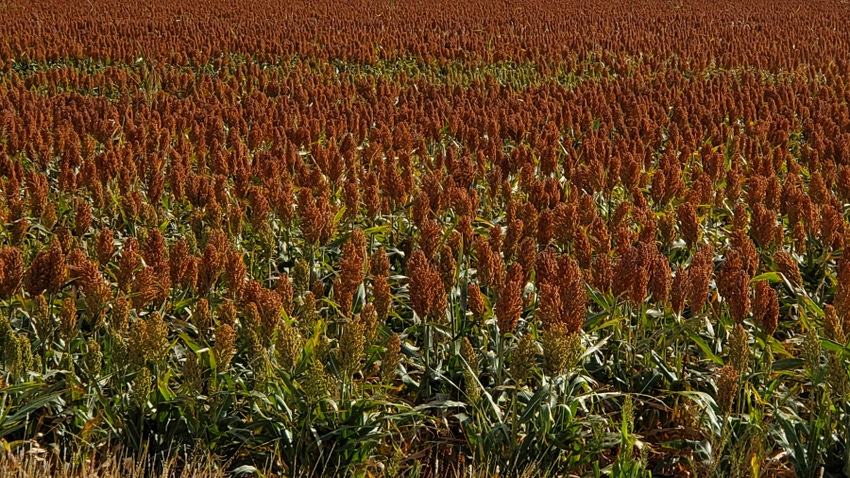July 5, 2023

Last fall, I wrote about the $65 million grant awarded to the National Sorghum Producers by USDA under the agency’s Partnerships for Climate-Smart Commodities program. Today, I’m pleased to say we’ve onboarded our first few farmers.
The speed with which such a large and complex program was able to be implemented is more confirmation: “Sorghum is The Resource Conserving Crop.” It’s climate-smart, drought-tolerant and heat-resistant, and it requires less water and other inputs than rival crops. It’s also a good source of protein and fiber, and it can be used for a variety of purposes, including food, feed and fuel.
In recent years, there has been growing interest in sorghum as a climate-smart crop given it has the potential to help farmers reduce their carbon footprint and improve their bottom line. Sorghum farmers and sorghum industry boosters like me have known this for years, but the word is finally getting out.
Reduced footprint
One of the key goals of NSP’s program is to help farmers reduce their carbon footprint and then quantify this reduction and its value in the marketplace. Sorghum can help farmers do this because the crop requires less tillage than other crops. Tilling the soil requires energy and releases carbon dioxide, so reducing tillage has a dual positive impact on the environment. Not surprisingly, the first farmers to be onboarded plan to reduce tillage as a part of their participation in the program.
Sorghum can also help farmers save water, given it requires one-third less water than corn, and we look forward to onboarding irrigated farmers looking to implement cropping system changes as well.
Competitive advantage
Of course, beyond environmental benefits like carbon emission reductions and water savings, sorghum can also help improve farmers’ bottom lines. I wrote about this earlier in the year, but sorghum is as competitive financially as it’s been since I started my career with the industry almost 12 years ago. And as input prices — and thus risk — continues to climb, this will only be truer.
The $65 million grant was a major step forward for the sorghum industry. The funding will help farmers adopt climate-smart practices and set the stage for many more conservation-minded endeavors in the future (more on that in the coming months).
Sorghum, The Resource Conserving Crop, won its title in a hard-earned battle fought against the forces of nature on the inhospitable High Plains over the past century, and it brings with it innumerable benefits to the modern consumer, as well. Let’s recap these benefits:
Drought tolerance. Sorghum is drought-tolerant and can withstand periods of dry weather. These facts make it a good choice for farmers in areas that are prone to drought.
Heat resistance. Sorghum is heat-resistant and can withstand periods of high temperatures. These facts make it a good choice for farmers in areas that have hot summers.
Water conservation. Sorghum requires one-third less water than corn. This fact makes it a good choice for farmers in areas experiencing declines in irrigation water availability.
Profitability. Sorghum has lower seed costs and requires slightly fewer chemical inputs. These facts make it a good choice for farmers looking to reduce costs.
High value. Sorghum is high in antioxidants, protein, fiber and iron; it is gluten-free; it is an ancient grain fundamentally unaltered by plant breeders over the past 8,000 years; and it has numerous climate-smart attributes. These facts make it a highly sought-after crop to the modern consumer.
Duff is founder of Serō Ag Strategies and serves as a consultant to National Sorghum Producers. He can be reached by email at [email protected] or on Twitter @sorghumduff.
About the Author(s)
You May Also Like






